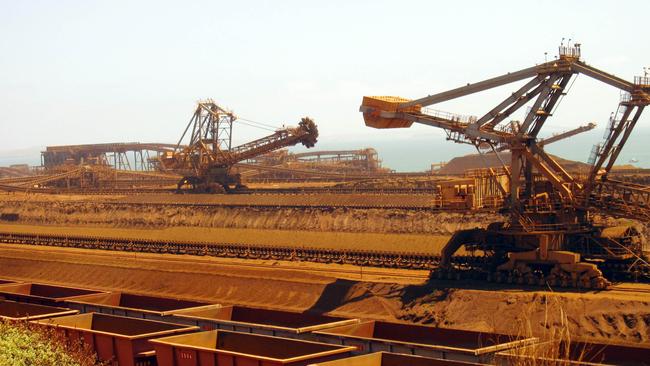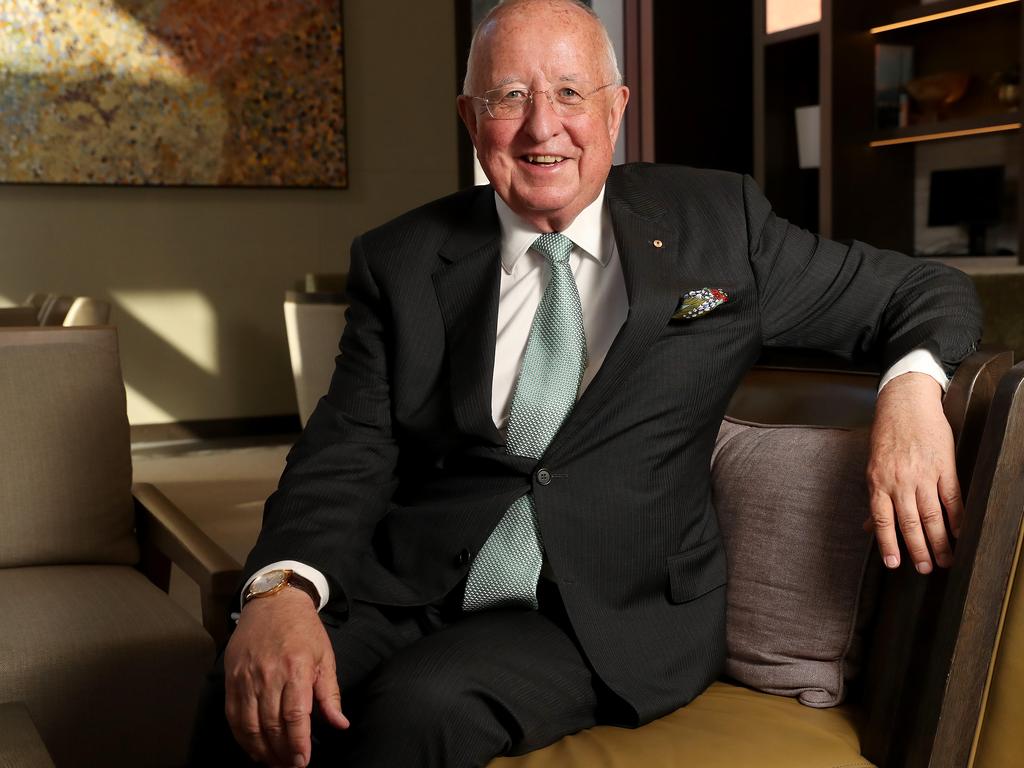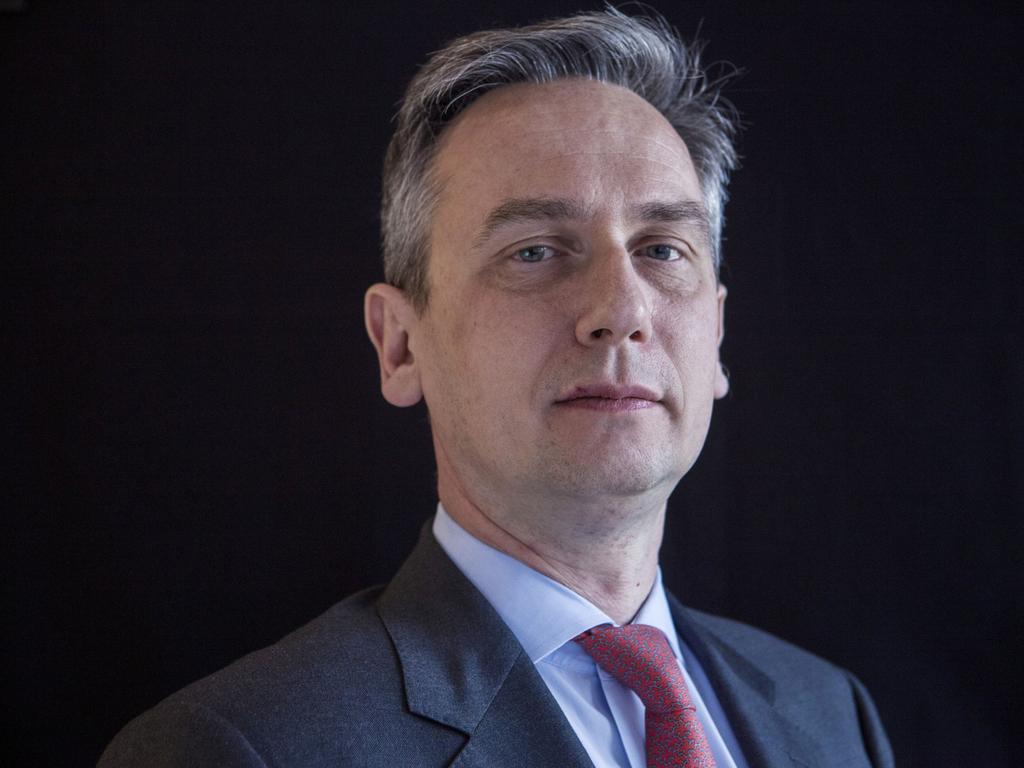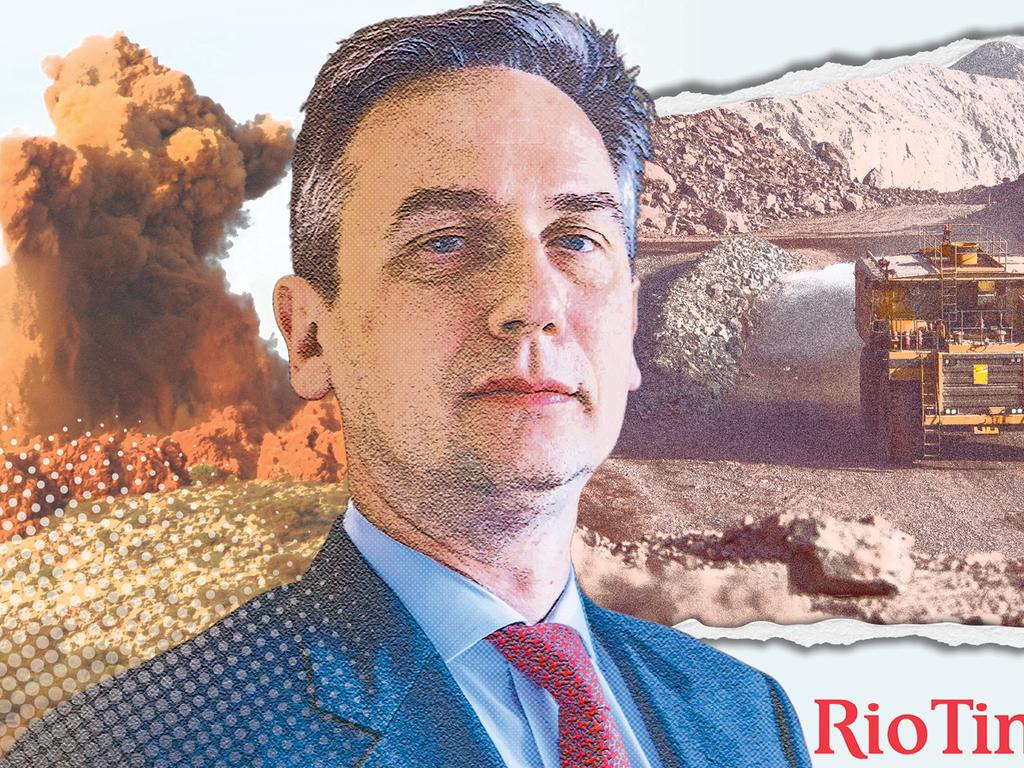Rio Tinto needs a steady hand not a cultural revolution: analysts
Rio Tinto needs an external chief executive who can steady the miner’s performance, analysts suggest.

Rio Tinto should look to appoint an external chief executive who can steady the miner’s performance rather than embarking on a cultural revolution, while investors may press for board renewal following its poor handling of the Juukan Gorge destruction, Shaw and Partners says.
The exit of chief executive Jean-Sebastien Jacques over the destruction of ancient rock shelters in Western Australia’s Pilbara has sparked a debate over how Rio should look to rebuild its executive ranks and whether its board also needs a clear-out over its delay in understanding investors’ anger over the incident.
Rio will almost certainly look to an external appointment given the lack of options within the company, but it may still want an executive with previous Rio experience, according to the broker.
“We expect the next CEO will be an external appointment — although prior Rio experience and understanding of the ‘good Rio DNA (pre-Alcan and 2013-15)’ would be well placed,” Shaw analyst Peter O’Connor said.
“A cultural revolution is not expected — it appears that may have happened in the past five years. If so, righting the good ship Rio is more important. A safe pair of hands is a good alternative, at least initially.”
The departure of Mr Jacques, along with iron ore chief Chris Salisbury and corporate affairs boss Simone Niven, may have relieved the immediate pressure on Rio’s board, but investors may still press for changes.
Confidence in the board
“Confidence in the company’s board may be the next market focus. As/when accountability is accepted by the board, changes will likely follow although the time frame is more likely over several AGM cycles,” Mr O’Connor said.
The $US370bn ($508bn) Janus Henderson Investors, one of Rio’s big investors, said there was “accountability at last” from the mining giant.
“We support the management change announced by Rio Tinto’s board in response to the destruction of culturally significant sites in Western Australia. Our investment process places great importance on economic, social and governance considerations and our team had been calling for further action following the Juukan Gorge debacle,” says Janus Henderson senior portfolio manager Tal Lomnitzer said.
“The initial sanctions of senior executives losing their bonuses were insufficient and irrelevant in the context of the destruction of irreplaceable heritage sites, the value of which is impossible to calculate. The reaction to the mounting pressure on the board and executives demonstrates that genuine accountability does operate within Rio Tinto.”
Rio has rejected criticism that its board and management were too London-centric, in responses to questions on notice from members of the parliamentary inquiry examining the events that led up to the debacle.
Rio told the committee it had reduced staff in London by 64 per cent during Mr Jacques’ tenure, while numbers in its Perth and Brisbane offices rose by 40 per cent and 24 per cent respectively, a rise of more than 1200 people.
But the miner remains under sustained pressure to restructure its corporate presence towards an Australian bias. The WA government has consistently said it should have a WA director, given more than 75 per cent of its assets sit within the state.
Laundry list of issues
Rio Tinto’s next chief executive faces a laundry list of cultural and corporate issues to work through, with the miner’s mainstay iron ore division underperforming rivals BHP and Fortescue Metals Group, analysts say.
The company was likely to be forced to look outside for a successor, with no obvious internal candidate, analysts at Credit Suisse and JPMorgan said.
A long list ranging from its underperforming iron ore business through to strengthening traditional owner relationships, climate change issues and delivering on a pipeline of projects will await the new boss.
“In our view, Rio’s core iron ore business has underperformed both BHP and Fortescue in recent years. There has been multiple production guidance downgrades. Adding to that, the business fell behind on waste stripping at one point, rail maintenance has been an ongoing headwind, and capacity hasn’t seemed to improve despite the $1bn AutoHaul rail project being delivered,” JPMorgan analyst Lyndon Fagan said.
“Some of these issues relate to inheriting previous management team decisions. However, we feel not enough has been done to deliver greater flexibility into the iron ore system, which has been running without any spare capacity. A fresh set of eyes could help Rio deliver on its port infrastructure capacity of 360Mtpa, where Rio hasn’t been able to fully reap the rewards to major capital investments. Additionally, some fresh faces could help with traditional owner relationships.”
No obvious internal successor
French-born Mr Jacques, who last year was paid $10.1m, will remain at the helm of Rio until a replacement is found, or until the end of March next year. With no obvious internal successor this will give Rio time to secure a new chief executive.
Delivering on its pipeline — including the Koodaideri iron ore growth project, the Oyu Tolgoi copper development which has been hit by delays and cost blowouts, and the complex Simandou iron ore venture in Guinea — will all need careful attention.
Rio still had significant work to do repairing its social and cultural performance in the wake of the Juukan Gorge incident, Citi said.
“Within the company, the issues which stand out to us are the lack of effective information dissemination between divisions and between the operational decision makers and senior leadership. We also note that culture is mentioned regularly in the company’s review, but from our reading of events we’re still not sure how the culture formed and was driven. We remain curious about the incentives faced by different parts of the company, and the extent to which these could be informative for cultural and process shortcomings,” Citi’s Zoe Whitton said in a note published before Rio’s executive clear-out.
Broader issues for the mining industry also needed to be contemplated both by Rio and its rivals BHP and Fortescue, she said.
“We believe there is a distinct disconnect between the industry norms regarding gaining Indigenous permission and community expectations — with the community apparently including a significant group of shareholders in this case. Industry practice and indeed policy is focused on negotiating compensation, not on gaining permission in the sense that it is regularly discussed. We suspect this context is important in informing policy failures at Rio.”
Ongoing reviews both at a state and federal level will also prove critical. Australia’s Environment Minister Sussan Ley will convene a meeting on September 21 between federal and state environment ministers to improve the nation’s approach to cultural heritage issues.
Rio shares rose 3.9 per cent on Monday to $103.73.






To join the conversation, please log in. Don't have an account? Register
Join the conversation, you are commenting as Logout